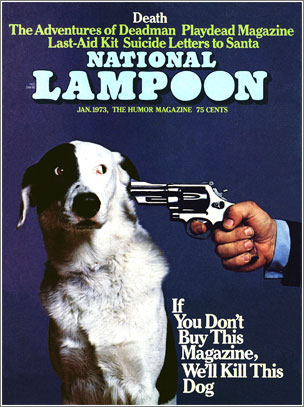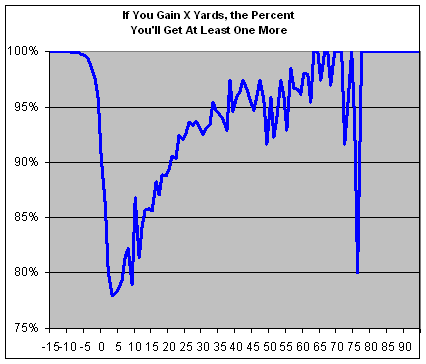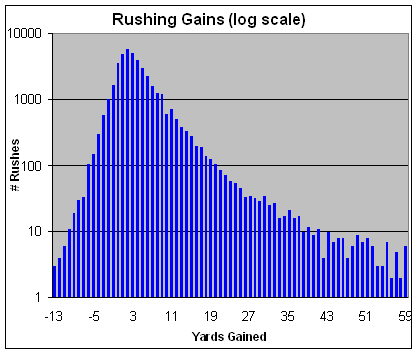-
Slowly I Return
Posted by Eddy Elfenbein on December 19th, 2008 at 2:32 pmOnce again, let me apologize for the lack of blogging this week. I can’t remember the last time I knocked so hard by ill-health.
I wish I could say I did a lot of reading this week, but almost all I did was sleep. I’m feeling much better, and I want to thank everyone who sent their regards. I plan to be up to full-speed soon.
There’s one item I felt I had to mention and that’s the passing of the great Irish journalist Conor Cruise O’Brien. What an extraordinary life he led. This is part of the obit from the Telegraph:Conor Cruise O’Brien, who has died aged 91, was the leading Irish intellectual of his generation, though he assumed so many guises – diplomatist, historian, literary critic, proconsul, professor, playwright, government minister, columnist and editor – that he defies further categorisation.
His views were as variable as his career. At one time responsible for Irish government propaganda which peddled an irredentist Republican policy on Northern Ireland, he later became a campaigning unionist and the bête noire of Sinn Fein and the IRA.
Critics charged that he was more interested in exercising his intellectual sinews than in resolving difficulties. But his recognition that the divisions in Ireland were rooted in two irreconcilable traditions led to increasing isolation within his own country, and required considerable moral – and occasionally physical – courage.
Equally, his awareness that the problems of South Africa had no easy answers, and his determined support for Israel, cut him off from the Left, with which he had once been associated. Yet O’Brien never drifted, in the conventional way, from Left to Right. Rather he remained consistently radical in his willingness to bring a fresh mind to bear on issues normally treated with entrenched prejudice. -
Lack of Posts
Posted by Eddy Elfenbein on December 18th, 2008 at 2:09 pmI have to apologize for the dearth of posts this week. I haven’t been feeling well. I hope to return to full blog-mode soon.
-
Quote of the Day
Posted by Eddy Elfenbein on December 17th, 2008 at 12:23 pmIn modern business it is not the crook who is to be feared most, it is the honest man who doesn’t know what he is doing.
– William Wordsworth -
Bernie’s Victims
Posted by Eddy Elfenbein on December 15th, 2008 at 8:06 pm -
SEC v. National Lampoon
Posted by Eddy Elfenbein on December 15th, 2008 at 3:17 pm
From the SEC’s website:SEC v. National Lampoon, Inc. et al.
Defendants: National Lampoon, Inc., headquartered in Los Angeles, California, is a media and entertainment company that develops, produces and distributes media projects including feature films, television programming, online and interactive entertainment, home video, and book publishing. The company produced such widely known films as National Lampoon’s Animal House, and the National Lampoon Vacation series. National Lampoon’s common stock is registered with the Commission and is listed on the NYSE Alternext, formerly the American Stock Exchange (“AMEX”). Daniel S. Laikin, of Los Angeles, California, has been the Chief Executive Officer of National Lampoon since 2005. Laikin controls approximately 40 percent of the voting stock of National Lampoon. Dennis S. Barsky, of Las Vegas, Nevada, is a consultant to National Lampoon, and a significant stockholder. Eduardo Rodriguez, of Livingston, New Jersey, is a stock promoter. Tim Dougherty, of Webster, New York, is a stock promoter and principal of OTC Advisors, Inc., a stock promotion company.
The Commission’s complaint alleges that, from at least March 2008 through June 2008, Laikin, Barsky, Rodriguez and Dougherty engaged in a fraudulent scheme to manipulate the market for the common stock of National Lampoon. Specifically, Laikin, along with Barsky, paid kickbacks in exchange for generating or causing purchases of National Lampoon stock to Rodriguez, a corrupt stock promoter, and the CW, whom Laikin, Barsky and Rodriguez believed had connections to corrupt registered representatives. As part of this scheme, Dougherty generated purchases of National Lampoon stock in exchange for a portion of the kickbacks. Dougherty made his purchases over the course of a number of days and used various accounts to give the false impression of a steady demand for the stock.
The complaint alleges that Laikin and Barsky paid at least $68,000 that went to Rodriguez, Dougherty, and the CW to cause the purchase of at least 87,500 shares of National Lampoon stock. Through these efforts, Laikin and Barsky sought to artificially push National Lampoon’s stock price from under $2 per share to at least $5 per share, in part, to keep the company’s stock price above the minimum listing requirements of the AMEX, and to increase National Lampoon’s ability to enter into possible “strategic partnerships” and acquisitions. In addition to paying others to purchase the stock, Laikin shared confidential financial information regarding National Lampoon, non-public news releases, and confidential shareholder lists, and coordinated the release of news with the illegal purchases in the stock. Barsky helped direct the purchases and facilitated the kickback payments. National Lampoon and Laikin also made materially misleading statements in a tender offer.
The complaint alleges violations of Section 17(a) of the Securities Act of 1933, Sections 9(a)(2), 10(b) and 13(e) of the Securities Exchange Act of 1934 and Rules 10b-5 and 13e-4 thereunder. The complaint seeks permanent injunctions against all defendants, disgorgement of ill-gotten gains, together with prejudgment interest, and civil penalties, from the individual defendants, and an officer and director bar against Laikin.(H/T: Kedrosky)
-
Madoff’s Campaign Contributions
Posted by Eddy Elfenbein on December 15th, 2008 at 1:19 pmIf anyone’s curious, Bernie gave a lot.
In light of the Madoff scandal, I’d like to announce that I’m opening a new hedge fund. We’re doing Bernie one better by not having any auditors. The savings is passed on to you. Assuming you’re an early investor.
Feel free to join us. The fund will be named Certified Asset Strategic Holdings. Just send me a check…you can make it out to our initials. -
Harvard Forced to Make Do With Less
Posted by Eddy Elfenbein on December 15th, 2008 at 10:27 amAll the chappers down at Porcellian have been most dreadfully upset:
It’s as if an heiress had lost her trust fund.
At Harvard University, the talk of billion-dollar losses in its massive endowment has blown in a new age of austerity across the campus.
Faculty, administrators, and students – who had been riding what one professor termed “the gravy train” for as long as anyone could remember – are suddenly living a different reality in Cambridge.
The cuts are big and small. There are the hiring freezes that run to the core of the university’s mission. But there are also the cookies and soft drinks eliminated from small faculty gatherings. A noon-hour seminar series that used to provide catered lunches from local ethnic restaurants will now serve pizza. -
Bernie Made-Off
Posted by Eddy Elfenbein on December 15th, 2008 at 9:36 amEven by Wall Street’s standards, the Madoff scandal is stunning. It’s hard to imagine anyone with a better reputation than Madoff, and his entire enterprise was a scam. The wealthy enclaves of Florida are especially feeling the effects of Bernie’s downfall. Here’s the Palm Beach Post:
Bernard Madoff didn’t accept money from just anyone. Clients ideally had to have at least $10 million to open an account with his New York investment firm.
While such wealthy people don’t turn up just anywhere, the Palm Beach Country Club provided enough to make Madoff’s membership in the predominantly Jewish club worthwhile.
On Friday, many of those who had considered themselves lucky to invest their millions with the part-time Palm Beacher were calling their accountants, their brokers and each other, wondering whether they had lost it all.
“Everyone is in shock,” said Richard Rampell, a Palm Beach accountant. “They’re embarrassed. They don’t want to believe they got taken.”
But, according to federal investigators, that’s exactly what happened.
“It’s all just one big lie … basically a giant Ponzi scheme,” Madoff told senior employees this week, according to documents filed in U.S. District Court in New York City.
The feds swooped in quickly and arrested the 70-year-old, who splits his time between a Manhattan apartment and a $9.3 million mansion on the Intracoastal Waterway just north of Flagler Memorial Bridge. The five-bedroom, seven-bath Palm Beach property once belonged to Herbert and Hilary Pulitzer.
After he told the employees that he had lost $50 billion invested with him, investigators were afraid he would carry through with plans to give the $200 million to $300 million that remained to favored employees, family and friends, according to court documents.
The $50 billion loss, if accurate, would be one of the biggest frauds in history. By comparison, when energy trading giant Enron filed for bankruptcy in 2001, it had $63.4 billion in assets. -
Deconstructing Rushing Yardage
Posted by Eddy Elfenbein on December 14th, 2008 at 2:18 pmFor a nice weekend diversion, here’s another stab at pro football sabermetrics. I’m new at this, so if anyone’s interested in this subject, I’d welcome any feedback, particular with the statistical analysis.
I wanted to look at rushing yards which is an interesting data set. I’m amazed at the wide dispersion of rushing gains in football. Basically, it works likes this—when running the ball, the key is to break out for a big gain.
While this sounds obvious to anyone familiar with football, the numbers are pretty striking. Consider that roughly 92% of a team’s rushing yards come on just half its rushing plays. The other half accounts for just 8%.
I could go so far as to say that we should no longer look at a rushing as the some total of yardage, but rather as a question, did the runner break out or not. I also wanted to see if a particular break out point could be identified.
For my data, I went to FootballOutsiders.com and bought the play data sets for the 2005, 2006 and 2007 seasons (the final week of the 2005 regular season isn’t included). I then separated out the 40,000+ running plays.
Here are some stats: The average run is for 4.24 yards. The median run is for 3 yards and the mode is for 2 yards. Both numbers suggest that the histogram has a strong rightward tilt.
What I wanted to do was construct a running play as a series of odds. Think of it as a probability game. If you gain one yard, what’s the probability that you’ll gain at least one more. Let’s say you pass that threshold and now have a two-yard gain, what’s the probability that you’ll gain at least one more. As I expected the probability that you’ll gain one more yard increases the farther down the field you go. In other words, rushing gains accelerate.
Here’s a graph of what rushing gains look like. The chart shows: if you can at least X yards what are the odds you’ll get at least X+1.

As you can see, as the running back breaks out, the yards are increasingly easier to gain. Gains beget more gains — that’s the key. (If you’ve notice a stock market equivalent, then you’ve probably read this blog before.)
Here are a few items I need to mention. There’s an unusual depression and spike at the 9- and 10-year mark. That’s probably due to NFL accounting which creates an unusually high number of 9-yard gains (plays that are just short of a first down). For my purposes, I’m side-stepping that issue since it’s not what I’m looking at nor does it seem to have an impact of the trend I’ve found.
You’ll also notice that the data become much more volatile as the run goes down the field. This is due to less data. For example, the outlier at the 76-yard mark (80%) is simply due to three runners being tackled there. Remarkably, Fred Taylor accounted for two of those runs! I should add that the graph refers to runs that are stopped, not touchdowns.
The hardest yard to gain is going from 3 yards to 4 yards. That’s just a 78.00% chance. But 4 to 5 is 78.11% so it’s not much better, and 5 to 6 is 78.52%. After that the yards are increasingly easier to gain. It would seem that the defense dominates 18 feet behind the line of scrimmage. After that, the field slowly turns in the runners favor. Runs of 7 or more yards make up about 20% of all runs but 60% of all yards gained.
Here’s a histogram of the rushing gains with a log scale. I had to exclude the extremes since the ones and zeros don’t work well with a log scale.

It’s that long, fat tail that’s so, so important.Here’s a spreadsheet of my data.
-
Peter Cook & Dudley Moore
Posted by Eddy Elfenbein on December 13th, 2008 at 2:52 pmNot terribly mature or safe for work.
-
-
Archives
- May 2025
- April 2025
- March 2025
- February 2025
- January 2025
- December 2024
- November 2024
- October 2024
- September 2024
- August 2024
- July 2024
- June 2024
- May 2024
- April 2024
- March 2024
- February 2024
- January 2024
- December 2023
- November 2023
- October 2023
- September 2023
- August 2023
- July 2023
- June 2023
- May 2023
- April 2023
- March 2023
- February 2023
- January 2023
- December 2022
- November 2022
- October 2022
- September 2022
- August 2022
- July 2022
- June 2022
- May 2022
- April 2022
- March 2022
- February 2022
- January 2022
- December 2021
- November 2021
- October 2021
- September 2021
- August 2021
- July 2021
- June 2021
- May 2021
- April 2021
- March 2021
- February 2021
- January 2021
- December 2020
- November 2020
- October 2020
- September 2020
- August 2020
- July 2020
- June 2020
- May 2020
- April 2020
- March 2020
- February 2020
- January 2020
- December 2019
- November 2019
- October 2019
- September 2019
- August 2019
- July 2019
- June 2019
- May 2019
- April 2019
- March 2019
- February 2019
- January 2019
- December 2018
- November 2018
- October 2018
- September 2018
- August 2018
- July 2018
- June 2018
- May 2018
- April 2018
- March 2018
- February 2018
- January 2018
- December 2017
- November 2017
- October 2017
- September 2017
- August 2017
- July 2017
- June 2017
- May 2017
- April 2017
- March 2017
- February 2017
- January 2017
- December 2016
- November 2016
- October 2016
- September 2016
- August 2016
- July 2016
- June 2016
- May 2016
- April 2016
- March 2016
- February 2016
- January 2016
- December 2015
- November 2015
- October 2015
- September 2015
- August 2015
- July 2015
- June 2015
- May 2015
- April 2015
- March 2015
- February 2015
- January 2015
- December 2014
- November 2014
- October 2014
- September 2014
- August 2014
- July 2014
- June 2014
- May 2014
- April 2014
- March 2014
- February 2014
- January 2014
- December 2013
- November 2013
- October 2013
- September 2013
- August 2013
- July 2013
- June 2013
- May 2013
- April 2013
- March 2013
- February 2013
- January 2013
- December 2012
- November 2012
- October 2012
- September 2012
- August 2012
- July 2012
- June 2012
- May 2012
- April 2012
- March 2012
- February 2012
- January 2012
- December 2011
- November 2011
- October 2011
- September 2011
- August 2011
- July 2011
- June 2011
- May 2011
- April 2011
- March 2011
- February 2011
- January 2011
- December 2010
- November 2010
- October 2010
- September 2010
- August 2010
- July 2010
- June 2010
- May 2010
- April 2010
- March 2010
- February 2010
- January 2010
- December 2009
- November 2009
- October 2009
- September 2009
- August 2009
- July 2009
- June 2009
- May 2009
- April 2009
- March 2009
- February 2009
- January 2009
- December 2008
- November 2008
- October 2008
- September 2008
- August 2008
- July 2008
- June 2008
- May 2008
- April 2008
- March 2008
- February 2008
- January 2008
- December 2007
- November 2007
- October 2007
- September 2007
- August 2007
- July 2007
- June 2007
- May 2007
- April 2007
- March 2007
- February 2007
- January 2007
- December 2006
- November 2006
- October 2006
- September 2006
- August 2006
- July 2006
- June 2006
- May 2006
- April 2006
- March 2006
- February 2006
- January 2006
- December 2005
- November 2005
- October 2005
- September 2005
- August 2005
- July 2005
 Eddy Elfenbein is a Washington, DC-based speaker, portfolio manager and editor of the blog Crossing Wall Street. His
Eddy Elfenbein is a Washington, DC-based speaker, portfolio manager and editor of the blog Crossing Wall Street. His